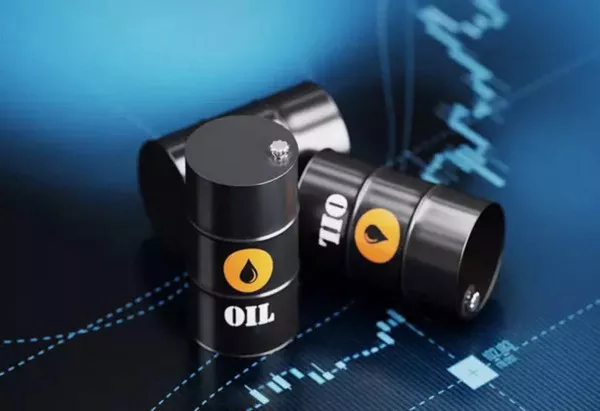Oil futures play a significant role in the global financial market, allowing investors and traders to speculate on the future price movements of crude oil. These financial contracts are standardized agreements that obligate parties to buy or sell a specific quantity of oil at a predetermined price on a future date.
1. Understanding Oil Futures Contracts
Oil futures contracts are traded on various futures exchanges worldwide, with the most prominent ones being the New York Mercantile Exchange (NYMEX) and the Intercontinental Exchange (ICE). Each contract represents a specific quantity of crude oil, typically measured in barrels. Contracts also have specified delivery months, allowing investors to choose from a range of maturities, from near-term to long-term futures.
2. The Mechanics of Oil Futures Trading
The mechanics of oil futures trading involve two primary parties: the buyer (long position) and the seller (short position). Buyers anticipate a rise in oil prices and seek to profit from the difference between the contract price and the prevailing market price at the time of expiration. Conversely, sellers expect oil prices to decline and aim to profit from the difference between the contract price and the lower market price.
3. Key Players in the Oil Futures Market
The oil futures market consists of various participants, including speculators, hedgers, and arbitrageurs. Speculators are individuals or entities seeking to profit from price fluctuations without any intention of taking physical delivery of the oil. Hedgers, on the other hand, are commercial entities, such as oil producers and consumers, who use futures contracts to hedge against price risk. Arbitrageurs exploit price discrepancies between various markets or contract maturities to lock in risk-free profits.
4. Trading Process of Oil Futures
Trading oil futures involves using a commodity futures broker who has access to the futures exchanges. Investors place orders through the broker’s trading platform, choosing from various order types, such as market orders, limit orders, and stop-loss orders. Market orders execute at the prevailing market price, while limit orders allow investors to specify their desired price levels for execution. Stop-loss orders are used to limit potential losses by automatically selling a position if the price reaches a certain level.
5. Factors Affecting Oil Futures Prices
Several factors influence the price of oil futures, making the market highly volatile and sensitive to global events. Supply and demand dynamics, geopolitical tensions, economic indicators, changes in government policies, and even weather patterns can impact oil prices. Staying abreast of these factors is crucial for making informed trading decisions in the oil futures market.
6. Role of Leverage in Oil Futures Trading
One of the key features of oil futures trading is leverage, which allows investors to control a large contract value with a relatively small initial investment (margin). While leverage can amplify potential gains, it also increases the risk of significant losses. Understanding the proper use of leverage and implementing effective risk management strategies are essential for successful oil futures trading.
7. Margin and Maintenance Margin
To trade oil futures, investors must maintain a certain amount of capital in their trading accounts, known as initial margin. Additionally, a maintenance margin is required to ensure that the account remains adequately funded to cover potential losses. If the account balance falls below the maintenance margin level, the investor may be required to deposit additional funds to bring the account back to the initial margin level.
8. Hedging with Oil Futures
One of the primary purposes of oil futures is hedging, where commercial participants use futures contracts to protect themselves from price volatility. Oil producers can use futures contracts to lock in prices for future production, safeguarding against potential price declines. Similarly, oil consumers, such as airlines or transportation companies, can use futures contracts to lock in prices for future purchases, protecting against price increases.
9. Speculating in Oil Futures
Apart from hedging, many investors and traders engage in speculating on oil futures to profit from price movements. Speculators analyze market trends, technical indicators, and fundamental factors to make educated predictions about future price movements. Successful speculation requires a combination of research, analysis, and risk management skills.
10. Risks Associated with Oil Futures Trading
Trading oil futures involves inherent risks due to the high volatility of the oil market. The use of leverage can magnify losses, leading to substantial financial risks. Additionally, unexpected geopolitical events, changes in supply and demand, or economic indicators can result in rapid price fluctuations. It is essential for traders to have a clear risk management plan in place and to avoid over-leveraging to protect their capital.
Conclusion
Oil futures play a vital role in the global financial market, providing investors and traders with opportunities to speculate on the future price movements of crude oil. Understanding how oil futures work, the trading process, key players, factors affecting prices, and risk management strategies are crucial for successful trading in this dynamic market. Engaging in oil futures trading requires thorough research, analysis, and discipline to navigate the inherent risks and capitalize on potential opportunities. With the right knowledge and a well-defined trading plan, investors can use oil futures to diversify their investment portfolio and potentially achieve attractive returns in the ever-evolving energy market.


